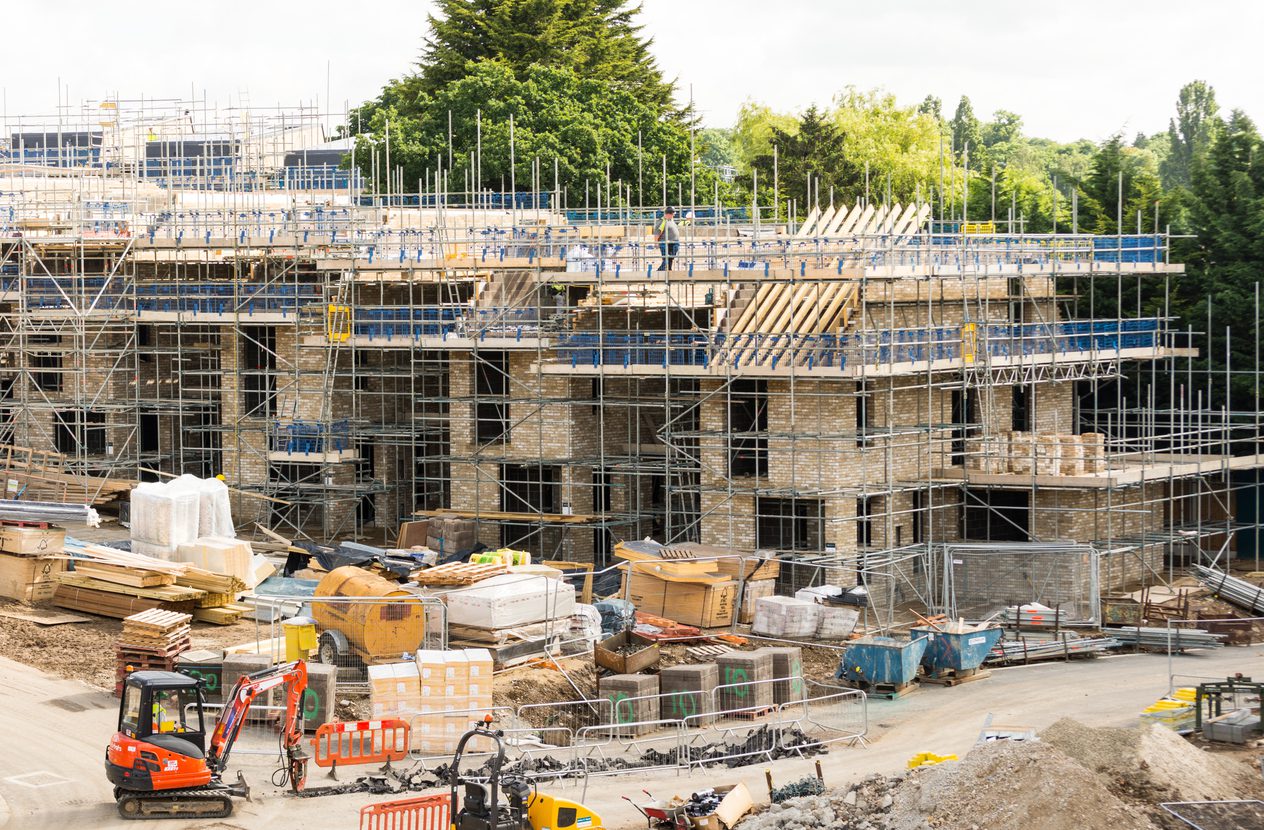The number of new homes being built slowed down in 2017/18 according to new statistics released by the Government.
The figures from the Ministry of Housing, Communities and Local Government (MHCLG) show that 222,190 new properties were built in the last year, 2% up on the 217,350 in the previous twelvemonth. However, that single-digit percentage is in marked contrast to the previous four years when the rises were 10%, 25%, 11% and 15%.
‘New build strategy is on track’
Chancellor of the Exchequer Philip Hammond announced plans to build 300,000 new homes per year into the 2020s at his 2017 Budget, and the MHCLG says that it’s new data shows those plans are “on track”.
“(The) figures are great news and show another yearly increase in the number of new homes delivered, but we are determined to do more to keep us on track to deliver the homes communities need,” declared Communities Secretary James Brokenshire MP.
“That’s why we have set out an ambitious package of measures to deliver 300,000 homes a year by the mid-2020s. This includes over £44 billion investment, rewriting the planning rules and scrapping the borrowing cap so councils can deliver a new generation of council housing.”
The last time new builds in the UK hit similar levels was when 223,530 were constructed in 2007/08 – just before financial crash of 2008. It went as low as 124,720 in 2012/13 before recovering, and recent measures aimed at boosting the sector, such as extending Help To Buy until 2023, have been cautiously welcomed in the property industry.
But the new MHCLG figures drew a mixed response, with Grainne Gilmore, head of UK residential research at Knight Frank, saying, “While more timely data capturing energy performance certificates (EPCs) granted to new homes suggest a continued pick-up in activity this year, separate housing starts data, which captures information on new homes being started on site, shows a moderation in activity, which could weigh on housing completions in 2020/2021.”
Brexit casts shadow
Blane Perrotton, managing director of property consultancy and surveyors Naismiths, pointed to ongoing uncertainty over Brexit as a factor, saying: “You don’t need to follow every tortuous twist and resignation of the Brexit saga to identify the culprit for the slowdown. Fragile demand and a lack of developer confidence since the 2016 vote have both slammed on the brakes, even here in the engine room of the construction industry.”
Homes England, a government organisation tasked with speeding up the building programme, has recently announced plans to unlock more private and public land for building by accessing £1.03bn in the Land Assembly Fund. The recent Budget also upped the Housing Infrreastructure Fund to £5.5bn, and Homes England also aim to partner with private finance to release more land for development.









